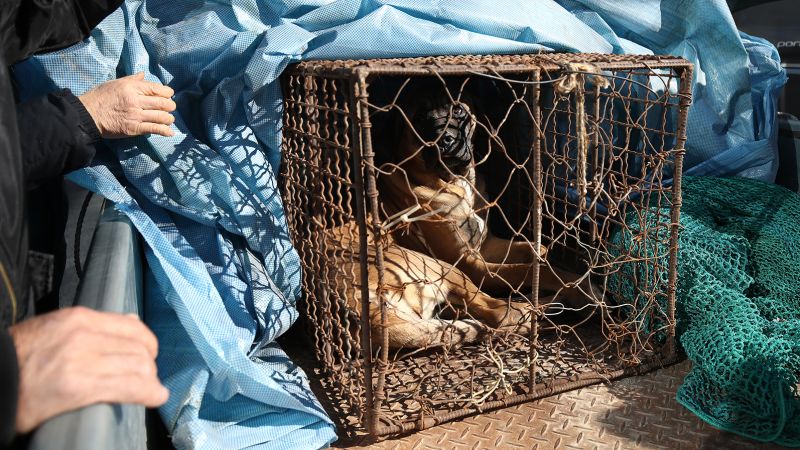South Korea’s parliament passed a bill Tuesday banning the breeding and slaughter of dogs for consumption, ending the traditional yet controversial practice of eating dog meat after years of nationwide debate.
The bill received rare bipartisan support across South Korea’s divided political landscape, highlighting how attitudes toward eating dog have transformed over the past few decades during the country’s rapid industrialization.
The law will ban the distribution and sale of food products made or processed with dog ingredients, according to the corresponding committee of the National Assembly.
However, customers who consume dog meat or related products will not be subject to punishment – meaning the law would largely target those working in the industry such as dog farmers or sellers.



In terms of “pigs have comparable intelligence and awareness to dogs, and thus if consuming a dog is wrong because they’re intelligent then so is consuming a pig,” or “a life is a life no matter the species,” yes this tracks.
However a single nureongi (a common dog breed in the Korean dog meat industry) only weighs 40-55lbs whereas a single pig will usually weigh 250-325lbs at slaughter. After the butchering process, the amount of edible meat is reduced for both, but proportionally speaking much more is lost per-animal from the dog.
“Amount of suffering/number of lives per pound of meat” feels like a crass discussion, however given that a majority (and in many countries, a vast majority) of people consume an omnivorous diet (and are highly resistant to switching to strict vegetarianism/veganism), it’s perhaps an unavoidable discussion.
It’s honestly a good calculus, however dark. I wonder how it might compare across protein sources?